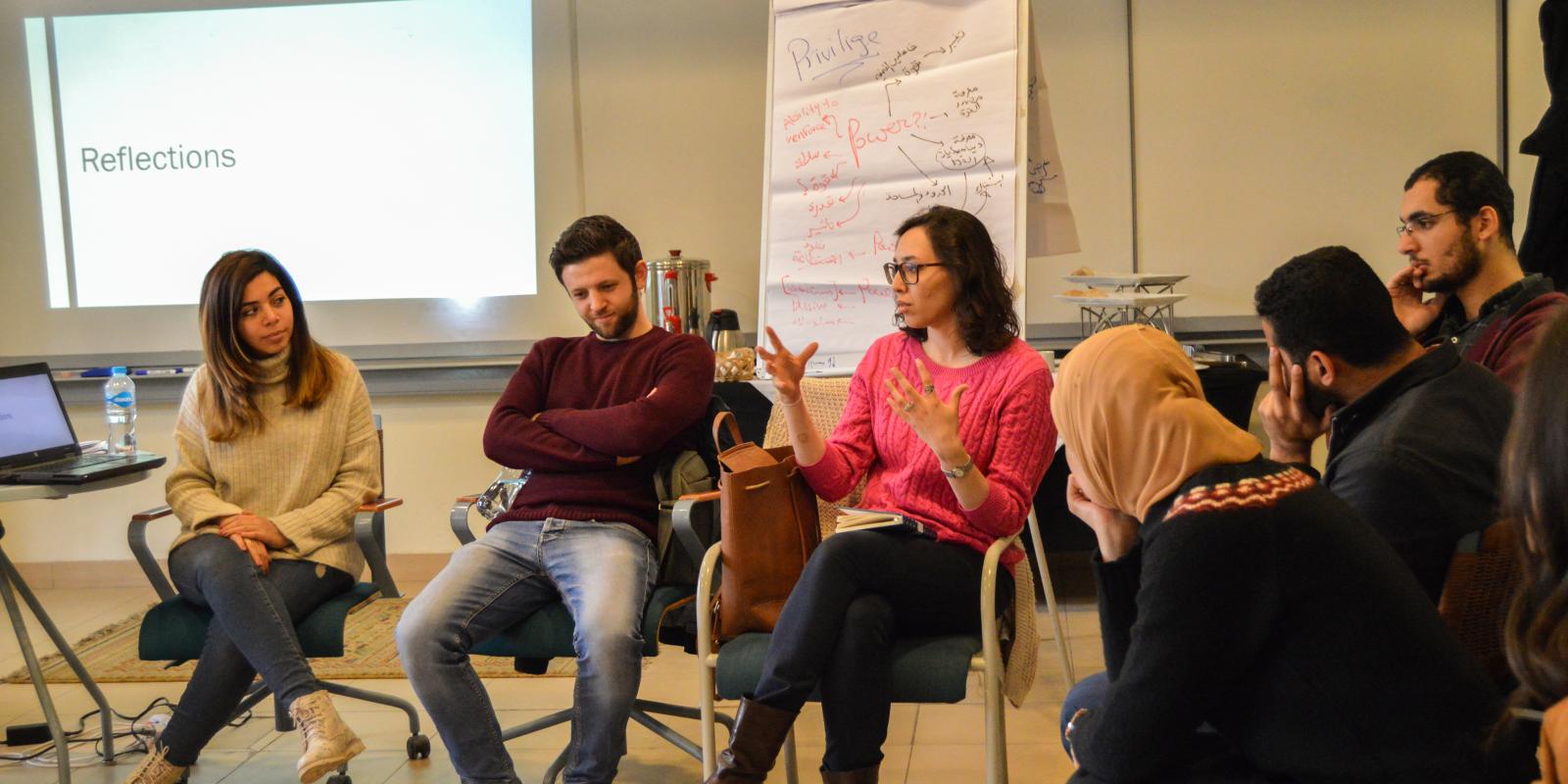
School of Business Offers First-Ever Family-Business Class in the Middle East
Despite their importance to local and global business, family business practices have yet to be adequately embraced by the academic community. Studies in the field are few, and specialized classes are even less. Entrepreneurship 420/4501, taught by Professor Ashraf Sheta, is an initial step by the school to reverse the trend and develop academic content for this imperative sector in the economy.
The AUC School of Business sat down with Sheta for a candid interview to find out more about the challenges in the field and the general experience of teaching the entrepreneurial course.
How did the course come about? What was the idea behind it?
The idea of the course came from the fact that family business is one of the main strategic themes in the AUC School of Business. Around four years ago, we [the School] started thinking of offering an entrepreneurship concentration. Given its connection to the School’s focus areas and the extensive scope of family business in Egypt – around 90 to 95 percent of businesses in Egypt relate to family – we felt that adopting such a class is important. Another reason that I personally observed was the sizable percentage of students in the School of Business whose parents own family businesses. The idea was to think of ways from an entrepreneurial point of view to [teach students how to] sustain a family business if needed.
Most family businesses in Egypt suffer from discontinuity. That could be applied to a global basis as well. There are statistics that say that only 5 percent of family businesses survive to the third generation. We wanted to confront the differences that happen between the older and newer generations and pose the question of how to accommodate them in a successful succession plan. There were so many different questions posed when designing the course.
How did you feel the students reacted to the issues discussed?
The class included animated discussions, particularly because of the interest that the topics had for students and their families. [The field's contents] were merely touched on in books related to entrepreneurship, but never as a topic in of itself. Little academic sources on family business exist, not just in Egypt, but also worldwide.
In our class discussions, we saw that many prominent businesses in Egypt are currently suffering from problems. Among the most common concerns discussed were children’s willingness to join the family business, sibling conflicts and cultural and legal barriers related to familial troubles. Students were split into teams to analyze these problems and reached some good insights.
Most of the notable conclusions revolved around implementation difficulties. We found that family businesses – while technically supposed to allow businesses to prosper – occasionally disintegrate wealth due to a failure in collaboration. We also found that there were some notable missing links on the best courses for scenario management. Some of our main observations involved the importance of both the legal identity and the separation of executive roles from ownership in family businesses.
During the course of the semester, we had four guest speakers from prominent family companies. We found that there was a noticeable correlation between the results that we were getting and the needs that they had in their businesses. We also invited PricewaterhouseCoopers to the class, as they are one of the few organizations to actually study family business.
What would you say is the biggest difference between family businesses and other businesses?
In my opinion, family businesses are a progression of generations. A business starts with a founder in the beginning, so it is classified as an entrepreneurial venture. After a while, it becomes a family business when other family members are integrated. The entrepreneur who started it all has full authority to do everything [in the beginning], but once family is introduced, things start changing.
What would you say was the biggest challenge that you faced during the course?
The absence of sources is a substantial constraint. I could not find secondary sources related to Egypt in the class, and I only found one textbook worldwide. There are some related books available, but nothing that is really academic. The field is still new.
Do you feel that classes such as yours could help increase academia on the matter moving forward?
100 percent. Even in my course, you have to keep in mind that the first time is usually not the best time. There are always some amendments and shuffling to be done. Over time, some sort of group thinking starts to develop organically.
